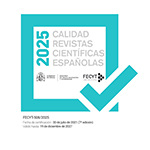Field-Based Art Programming As a Facilitator for Transformative Learning Experiences in Tertiary Education: Participants Reflections on Land Arts of the American West
Participants Reflections on Land Arts of the American West
Abstract
Field-based art programming proposes a different pedagogical model to respond to contemporary challenges that artists face, ranging from ecological crises to the education and development of artists. This article analyzed interviews with field-based art programming participants across two decades, focusing on artists’ experiences through their own voices. Out of the interviews with participants from Land Arts of the American West, in which participants travel, camp, and create at different sites throughout the Southwest, the participants narrate important elements of field-based art programming. Using Mezirow’s theory of Transformative Learning, this article uses participants’ descriptions to analyze the pedagogical aspects of field-based art learning that denotes a transformative experience, distinct from what is available to them in conventional tertiary art classes. Central reoccurring themes identified include immersive nature, art-making, community, and place. Participants’ responses reveal Disorienting Dilemmas and having transformative experiences.
Downloads
Article download
License
In order to support the global exchange of knowledge, the journal Arte, Individuo y Sociedad is allowing unrestricted access to its content as from its publication in this electronic edition, and as such it is an open-access journal. The originals published in this journal are the property of the Complutense University of Madrid and any reproduction thereof in full or in part must cite the source. All content is distributed under a Creative Commons Attribution 4.0 use and distribution licence (CC BY 4.0). This circumstance must be expressly stated in these terms where necessary. You can view the summary and the complete legal text of the licence.










